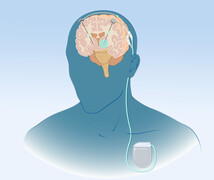Being able to communicate is important to Nancy Johnson of Fayetteville, whose movement disorder makes it difficult for her to speak clearly and be understood. Speech therapy at Duke has made a huge difference. “It’s making life better for me,” Johnson said.
Communication Limitations Affect Quality of Life
Nancy Johnson knows what she wants to say, but it doesn’t always come out as clearly as she hopes. Nearly two years ago, Johnson was diagnosed with a progressive spinal cerebellar disorder, which affects her muscle control, including her ability to walk, speak and eat. “People couldn’t understand me and kept asking me to repeat things,” said Johnson. Her neurologist recommended she receive speech therapy at Duke.
The first step was to work on her speech, breathing and eating skills with her speech therapist. Johnson learned exercises that would improve her volume and clarity. Respiratory muscle strength training improved Johnson’s ability to inhale and exhale. Johnson also learned exercises that would strengthen the muscles she uses to chew and swallow.
Learning to Enjoy Social Situations Again
Once Johnson showed improvement, her speech therapist took a closer look at how communication and movement challenges were affecting Johnson’s quality of life. Johnson wasn’t doing what she used to enjoy. She wasn’t volunteering anymore, she wasn’t having friends come over.
Working together, Johnson and her speech pathologist created goals that included picking specific situations she could participate in again. Their monthly sessions focused on the activities she enjoyed, such as participating in board games and completing puzzles. Johnson also learned strategies that would help her better communicate in social situations.
Making Progress
Nearly 18 months later, Johnson has made significant progress. She has done really well with her respiratory measures and understanding the strategies she can use to make her speech clear. Johnson’s husband has played an important role too by cheering her on and being an excellent motivator. He lets her know when she is making progress. That support is very important.
Johnson said the hard work has paid off. “I think I’m doing okay. I practice everything. My condition isn’t getting any better, but I am doing the best I can. I am doing what I can to stay on top of it.”





